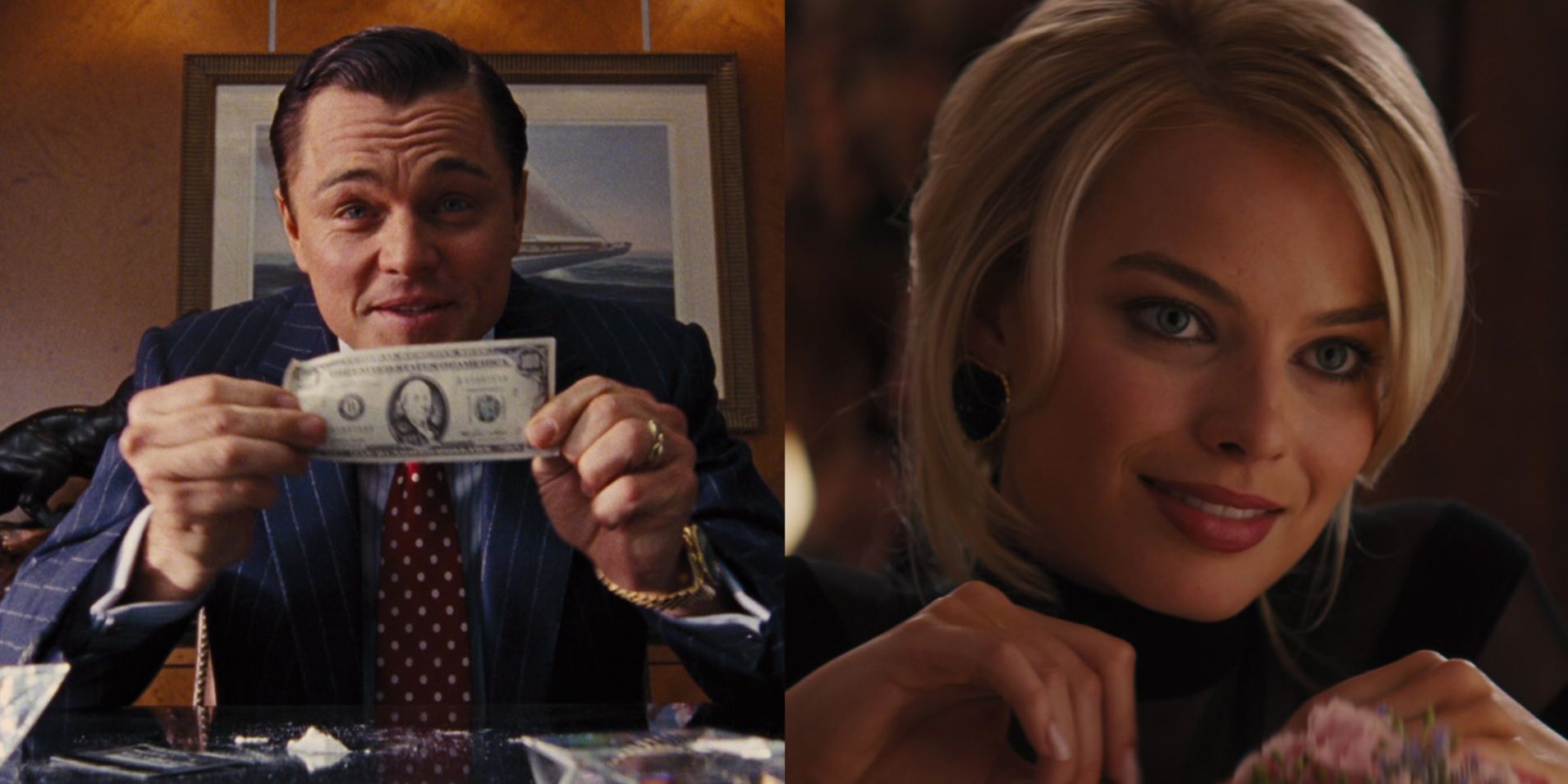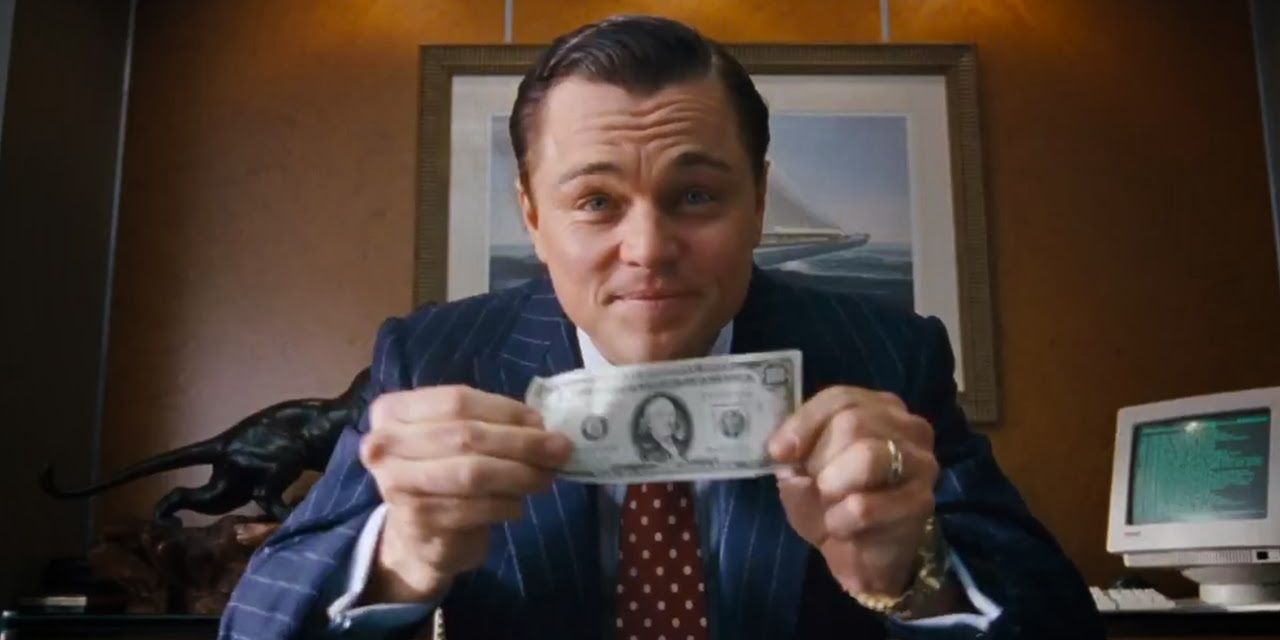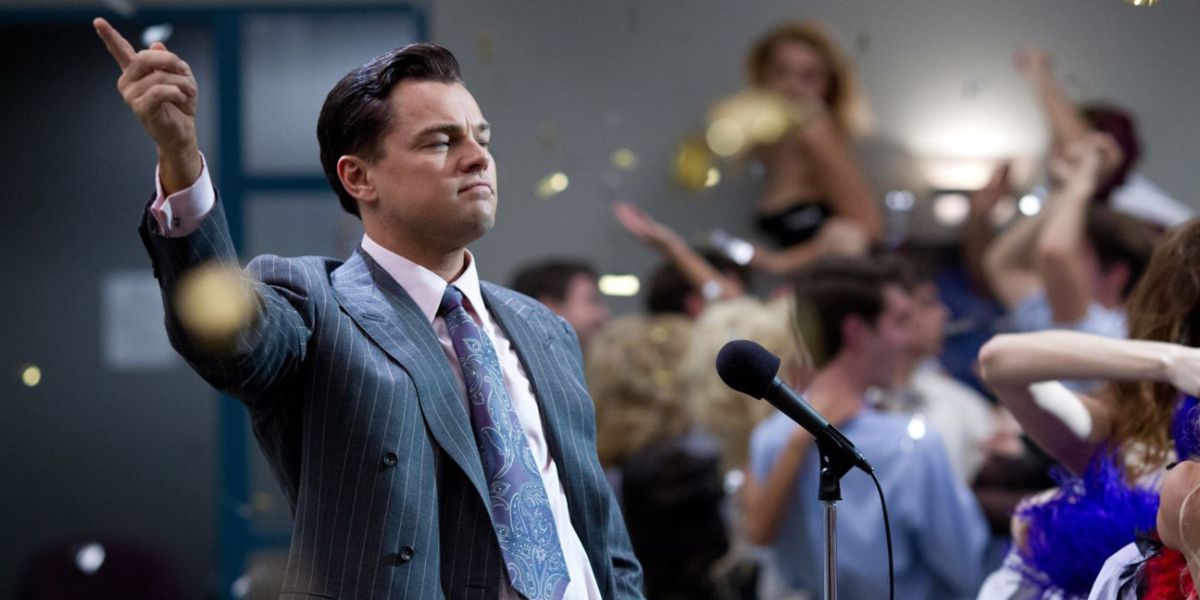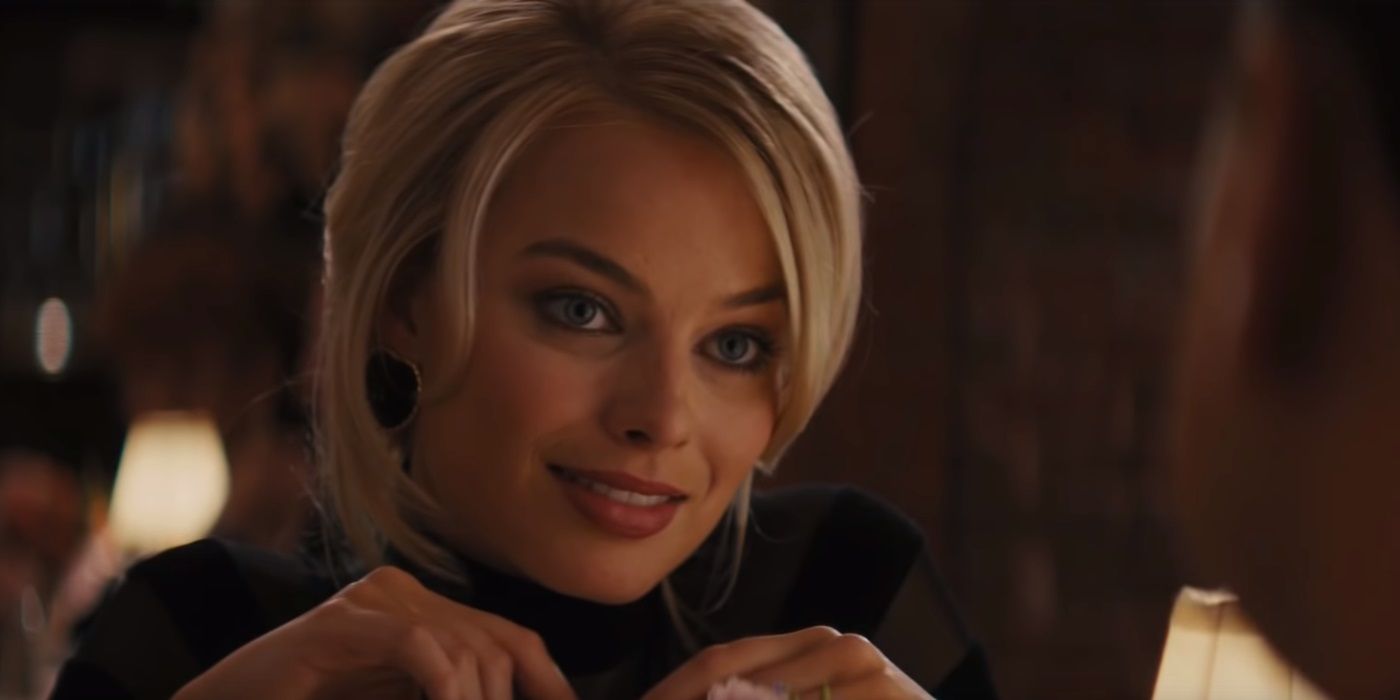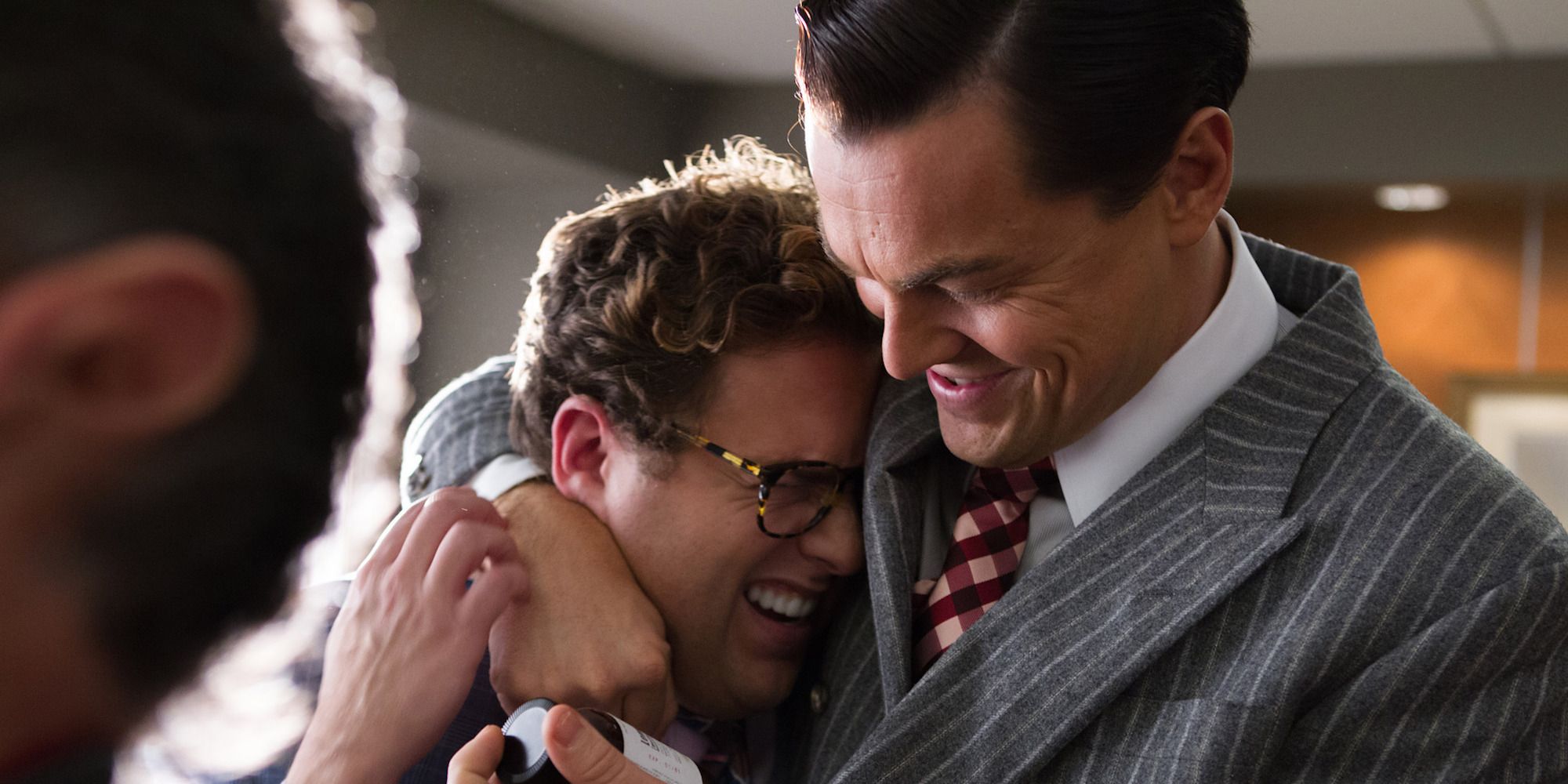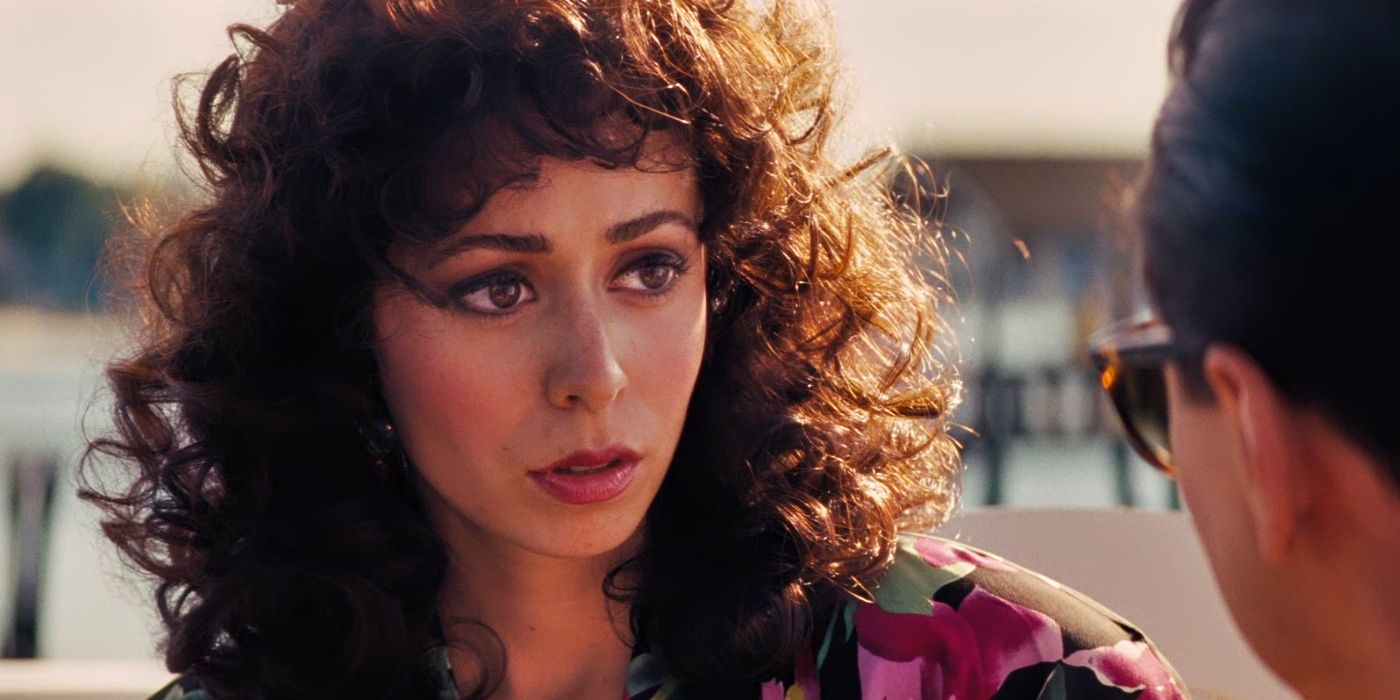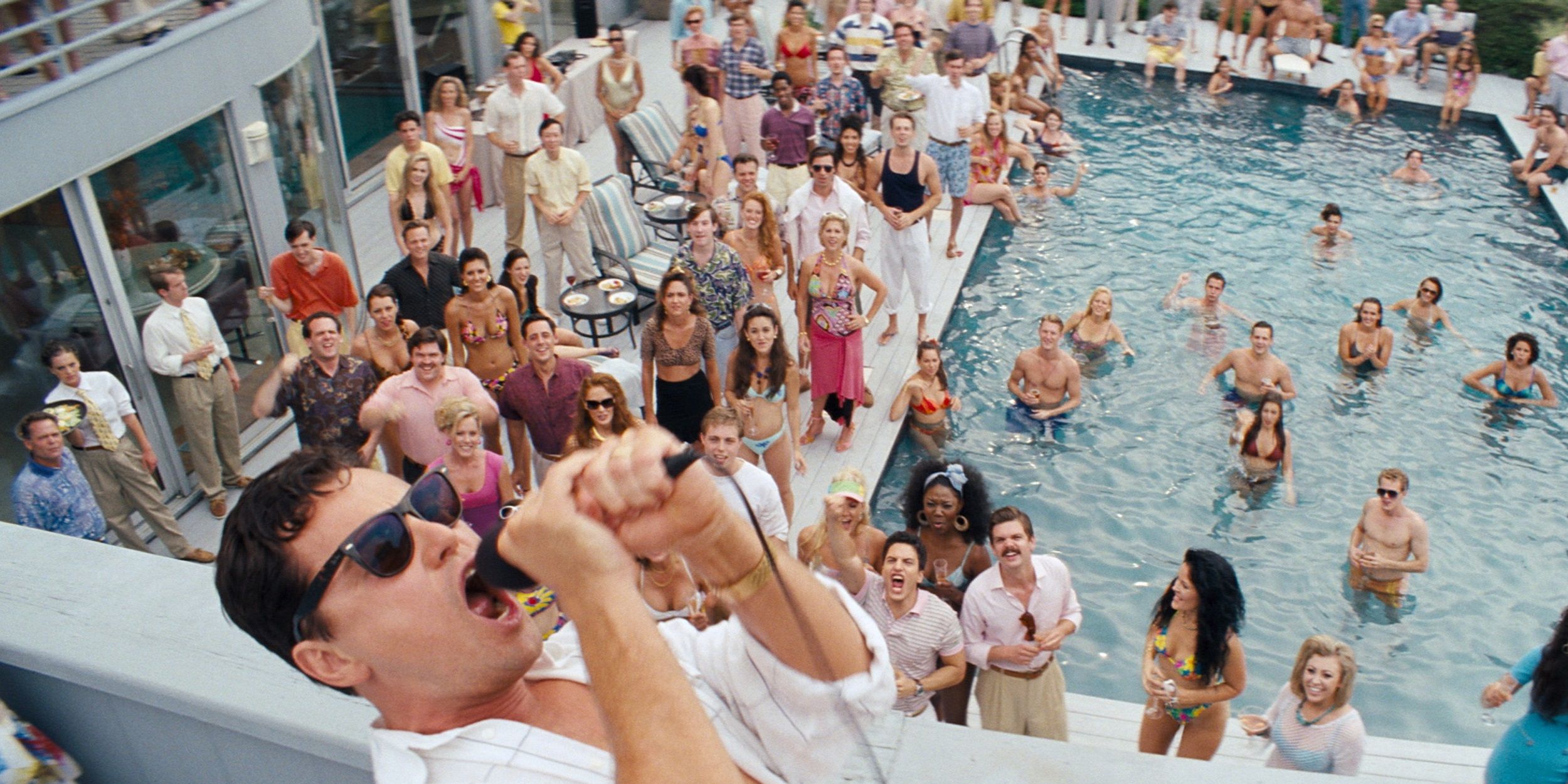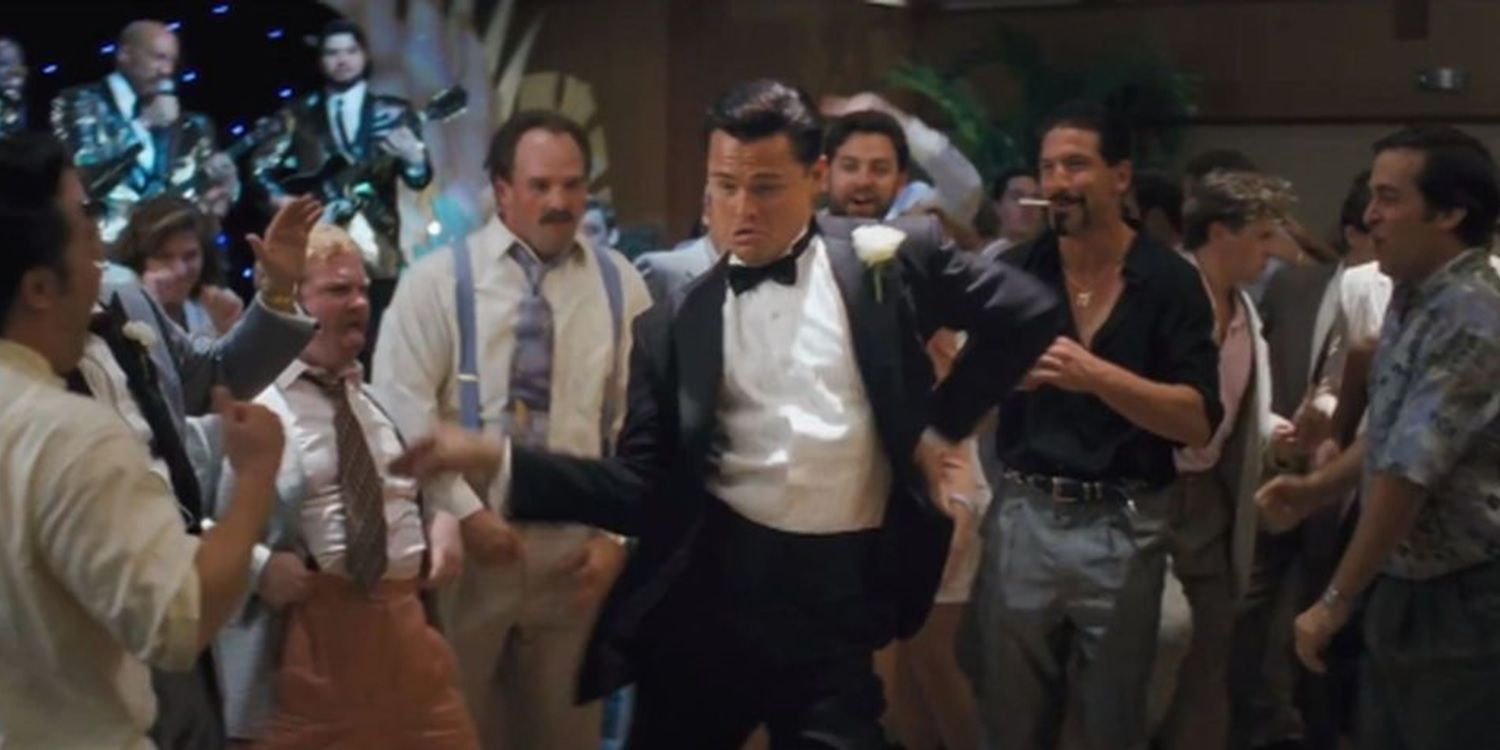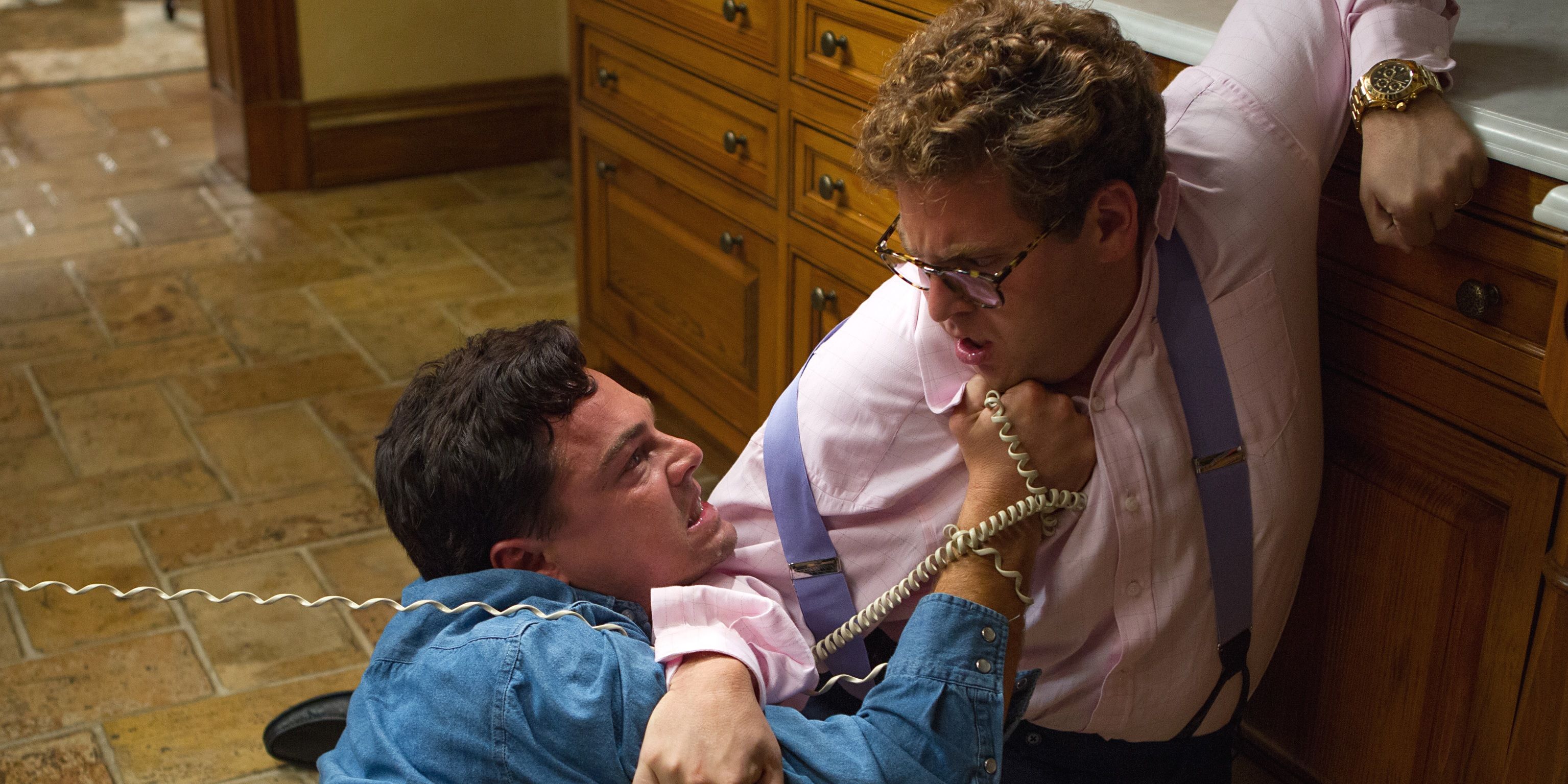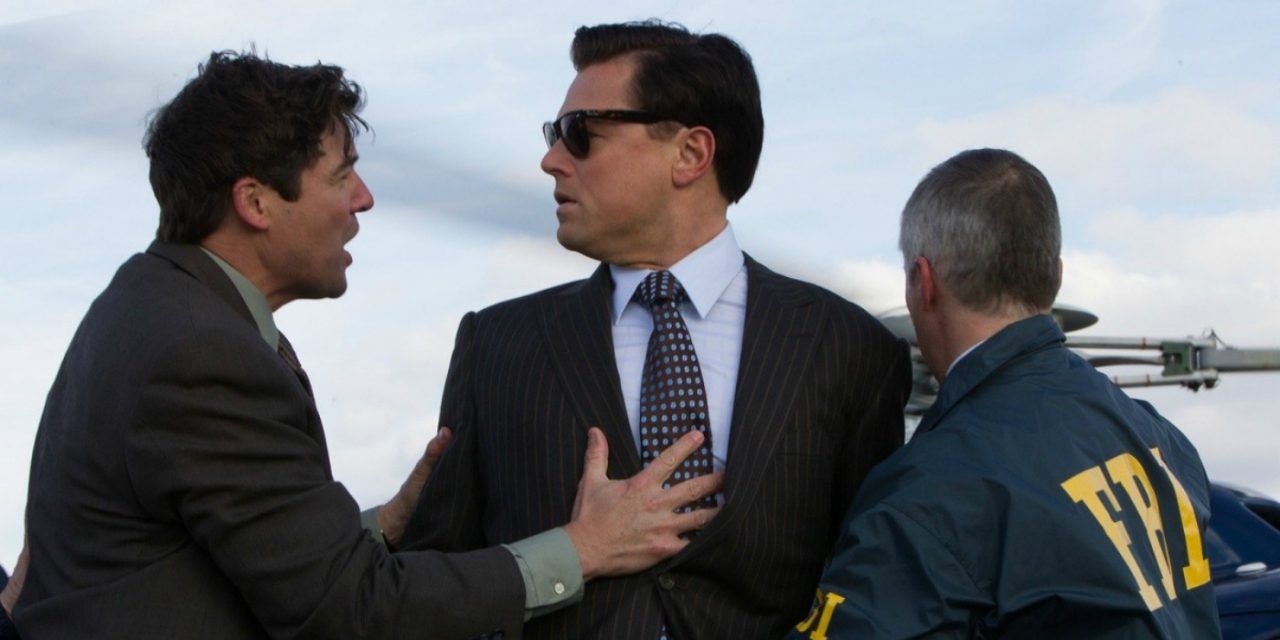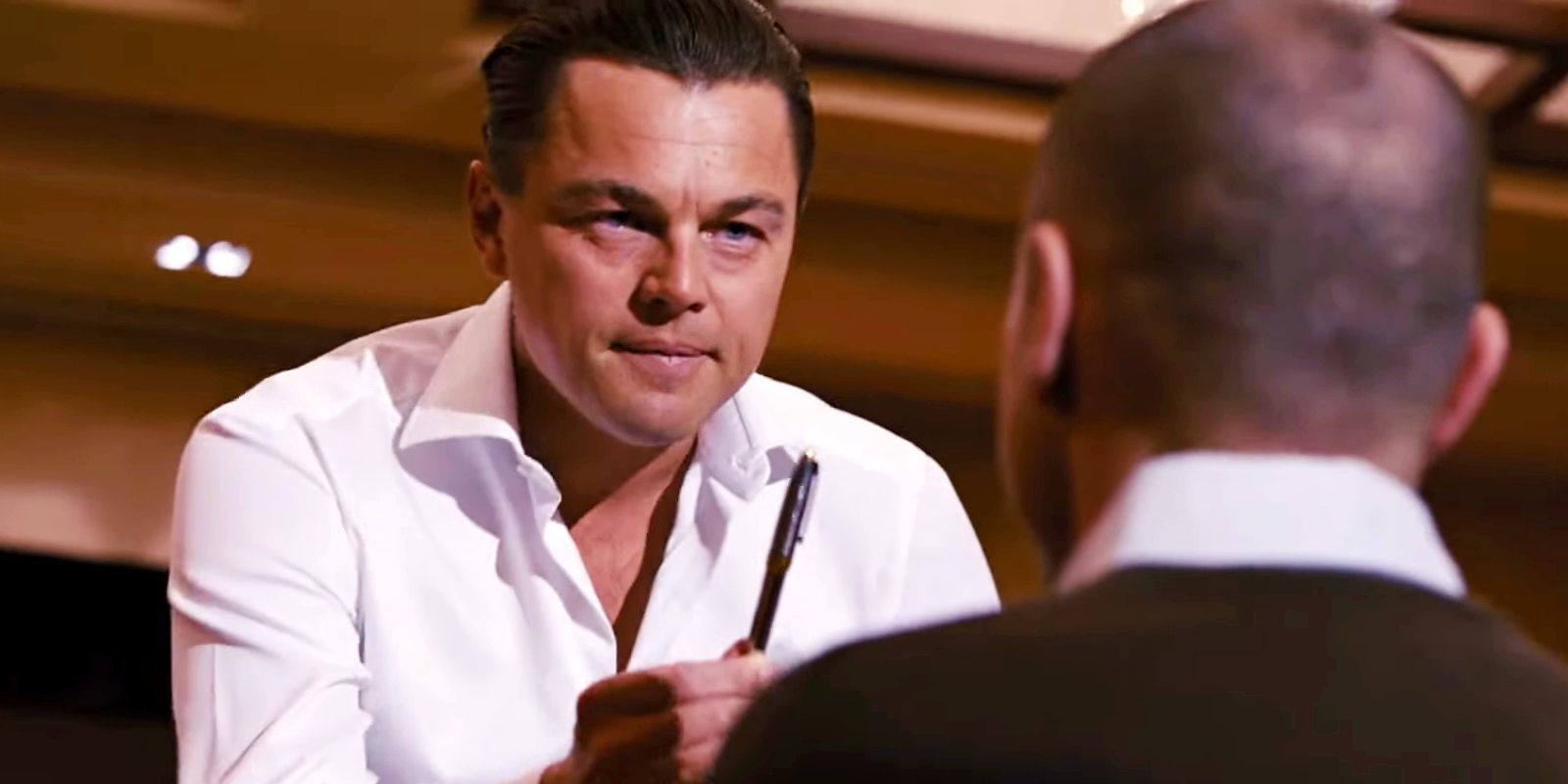Soundtrack needle-drops are a well-established trademark of Martin Scorsese’s filmmaking. He played the Rolling Stones’ “Jumpin’ Jack Flash” over Johnny Boy entering the bar in Mean Streets, he played Ray Charles’ “Come Rain or Come Shine” over the opening credits of The King of Comedy, and he played Sid Vicious’ cover of “My Way” at the end of Goodfellas.
With its fast-paced editing and voiceover narration, The Wolf of Wall Street felt like a throwback to the traditional Scorsese style after a couple of tonal departures. The movie’s soundtrack has its fair share of needle-drops.
“Dust My Broom” By Elmore James
One of the many Scorsese trademarks in The Wolf of Wall Street is voiceover narration. Whereas the voiceovers in Goodfellas and Casino were used to explain the inner workings of the mob, the voiceovers in The Wolf of Wall Street were used to explain the complexities of stock trades.
Over Jordan’s opening voiceover about the color of his Ferrari, Scorsese plays the sumptuous sounds of Elmore James’ “Dust My Broom.” This song reappears later when Jordan recklessly flies his helicopter while high on Quaaludes.
“Smokestack Lightning” By Howlin’ Wolf
From orgies to drug binges to people-tossing events, all kinds of depravity goes on at the offices of Stratton Oakmont. Jordan believes that his employees’ morale will be boosted if he has a whirlwind of drugs and prostitutes swooping through the office at all times.
During one of the hard-R orgy sequences in the office, Scorsese plays the bluesy guitar strings of Howlin’ Wolf’s “Smokestack Lightning.”
“Boom Boom” By John Lee Hooker
During Jordan’s first dinner with Naomi, she ambiguously tells him that they’re not going to be friends. As Jordan drives Naomi home, he tries to think of a way to elevate their relationship from non-friends to lovers. While these thoughts are running through his head, John Lee Hooker’s “Boom Boom” plays in the background.
Covered more famously by the Animals, “Boom Boom” was called “the greatest pop song [Hooker] ever wrote” by music critic Charles Shaar Murray in the book Boogie Man: The Adventures of John Lee Hooker in the American Twentieth Century.
“Movin’ Out (Anthony’s Song)” By Billy Joel
Billy Joel is one of the most popular musical artists in the world, but his songs don’t often appear on the soundtracks of movies. One of the most memorable examples is the doowop-only Billy Joel cover band that performs at the Catalina Wine Mixer in Step Brothers.
Scorsese licensed one of Joel’s biggest hits – “Movin’ Out (Anthony’s Song)” – for the scene in The Wolf of Wall Street in which Jordan gathers his sales team to pitch a brokerage idea.
“C’est Si Bon” By Eartha Kitt
One of the most crucial moments in The Wolf of Wall Street sees Jordan’s first wife catching him with the mistress who ultimately becomes his second wife. He’s faced with a make-or-break decision: try to make it work with his first wife or divorce her and marry the mistress.
He’s caught red-handed in the worst way possible, snorting cocaine off of Naomi in the back of a limo. This scene is underscored by Eartha Kitt’s “C’est Si Bon.”
“Insane In The Brain” By Cypress Hill
Jordan hosts many wild parties throughout The Wolf of Wall Street, but most of them take place at the offices of Stratton Oakmont. In one key sequence, he brings the partying to his house as he hosts his employees and a bunch of friends and well-wishers at his mansion.
The first song that plays at this gargantuan house party is “Insane in the Brain” by Cypress Hill, the first hip-hop group to have a star on the Hollywood Walk of Fame.
“Pretty Thing” By Bo Diddley
A bunch of famous songs play during Jordan and Naomi’s wedding in The Wolf of Wall Street, including a cover version of Shirley Bassey’s “Goldfinger,” one of the all-time greatest James Bond movie themes.
Bo Diddley’s “Pretty Thing” is another song that plays during the wedding sequence. Leonardo DiCaprio performed a truly iconic dance for this wedding scene.
“Popeye The Sailor Man” By Sammy Lerner
Arguably the most iconic and beloved sequence in The Wolf of Wall Street is when Jordan and Donnie take expired Lemmon-brand Quaaludes. They think they’ve gone off, so they keep taking more and more until suddenly, they hit. After the high kicks in, Jordan just about makes it back to the house, where he desperately tries to stop Donnie from talking business on his FBI-tapped phones.
When Donnie chokes on a cold cut and needs Jordan’s help, Jordan sees Popeye eating spinach to bulge out his muscles on the TV and – set hilariously to the “Popeye the Sailor Man” theme – he takes cocaine to create a similar effect.
“Mrs. Robinson” By The Lemonheads
The Lemonheads’ headbanging cover of Simon & Garfunkel’s “Mrs. Robinson” plays over the glorious sequence in which FBI agents raid Stratton Oakmont’s office and finally bring Jordan’s criminal empire crumbling down.
This marks the second time that Scorsese has used a punk rock cover of a classic song to represent the hammer of justice. Sid Vicious’ cover of Frank Sinatra’s “My Way” plays over Henry Hill’s mundane suburban existence as a protected witness at the end of Goodfellas.
“Cast Your Fate To The Wind” By Allen Toussaint
The final scene of The Wolf of Wall Street utilizes Allen Toussaint’s cover of the Grammy-winning Vince Guaraldi hit “Cast Your Fate to the Wind.” At the end of the movie, Jordan is shown to have gotten off lightly as he enjoys life as a free man, giving seminars to wannabe business tycoons.
He uses his usual trick to make the seminar attendees feel like they’re beneath him. He gives them a pen and puts them on the spot: “Sell me this pen.” The final shot of gawping consumers points to the audience’s own role in a capitalist society that allows people like Jordan Belfort to thrive.

